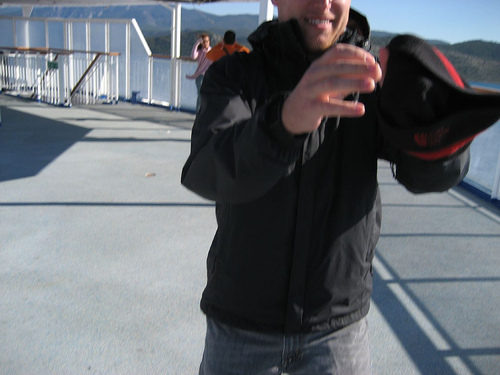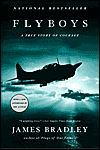To develop a standard you must start with a command or principle and add a key ingredient: wisdom. Wisdom itself is a combination of two things: knowledge plus action. As youth leaders we have seen the consequences of teenagers applying one without the other...
True biblical wisdom is the melding of knowledge and action together. And we're convinced it's the missing tool in the toolbox of Christian teenage America. Youth ministries across the country send graduating class after graduating class into a world where wisdom is a necessity--and where a lack of wisdom spells four years, if not a lifetime, on the treacherous open seas of relative thought and painful consequences. Yet we tend to program our ministries to answer all of our students' questions for them rather than challenging them to come to the same conclusions themselves. And it's only in that challenge that wisdom is born.
Mike Krzyzewski, head basketball coach at perennial power Duke University, speaks well to this. In his book Leading from the Heart (one of our favorite books on leadership), he notes that 'many people set rules to keep from making decisions.' He believes that if his players never develop the ability to ask questions, if they never learn the art of critical thinking, they will not, in the end, be able to withstand pressure and perform at the highest level possible. He goes so far as to have only one rule for his basketball team: Do not do anything that is detrimental to yourself, because if it is detrimental to you, it will bring dishonor to Duke basketball and Duke University.
Some may say that this rule is not specific enough. You could even argue that it goes against the idea of setting standards. On the contrary: Coach K has only one rule so that his players can begin to develop the ability to discern between right and wrong, to ask critical questions, to develop standards on their own, to become wise. His one rule forces his players to always question what they are doing or what they're thinking about doing. It literally sets the course for their future, both on the team and after graduation. And as Coach K says so well, 'Whatever a leader does now sets up what he does later. And there is always a later.'
(emphasis mine)
My pastor recently finished a series on Proverbs, discussing the different aspects of wisdom that the book offers. To paraphrase his general guiding definition of the study of wisdom:
I suppose no where in our lives are we more internally driven to consider the topic of wisdom and to desperately hope to find, to have, and to utilize it, than in those situations where we are facing major life decisions:
Moral standards, as important and as crucial as they are, actually don't address most of the situations that you face. Whatever you think the rules are...most of the situations that you actually face aren't covered by those rules.
Wisdom is more than moral goodness, more than knowledge...it is a competence with regards to the realities of life - being able to make the right decisions in the vast majority of circumstances where the rules don't apply.
"Lord, guide me in what school to choose."
"Is this the right job for me?"
"Am I being called to this ministry?"
"Should I consider spending the rest of my life with this person?"
And so on.
As far as such major decisions in my life - and I've only had a precious few to face - I've never felt the Omnipotent Guiding Hand gently brushing me in the right direction. I've never seen the correct option illuminated in a heavenly glow, or heard it heralded by angelic choirs. I've never sensed a booming or even whispering voice, and I don't believe I've ever really been given a clear sign. This is probably because I haven't had my eyes opened to see, my ears open to hear, and so on...I'm not really sure.
I do believe, however, that God gave us the possibility of wisdom, perhaps in place of clearer forms of guidance, like the aforementioned - and at any rate encourages us to seek wisdom out. As mentioned in Max Q, wisdom can be considered a meld of knowledge with action. Either without the other is rather impotent. And I believe its important to realize that even with the right knowledge, and an honest volition to action, we do not have the guarantee of the perfect solution. We do, however, have the very strong assurance of the wisest choice.
And this is how the Christian is to base his decisions - couched in prayer and meditation, dutifully committed to the Lord's will in study of scripture and seeking of guidance from wiser folk... And with the hope that no matter what, even the wrong decision (to our perception) can and will be worked to our good and His glory in the end, notwithstanding.
Commit your works to the Lord, and your thoughts will be established.
Yet this is not a complete assurance - as far as wisdom and decision making go. And that is not necessarily a bad thing - it forces us to rely on God and place our trust fully in Him, even as we make wise decisions - hoping for the best outcome. We are realistic that not every "wise" choice will always be the "right" choice - but we're not worried about that reality, either.
The important final ingredient of wisdom, I think, is a hopeful trust - and not a blithe one, in any sense. Rather, it is based on the facts: when I look back, I can only wonder and marvel - for surely goodness and mercy have followed me all the days of my life. And if God has brought me this far already, how much exceedingly more is He able and planning to do?
I have only to live under the one standard that the Coach has set forth: to Glorify God and enjoy Him forever. If I can objectively evaluate my life and actions in this light, and am committing the big decisions as well as the little to Him, I can effectively be assured (ironically) that I am going to make the wise decision, no matter what I decide.
Because of this, I am able to approach the major life decisions with an air of competence - without anxiety, knowing that, if I remain humble (yet confident!) - the wise choice will be made, and the ultimate good will be realized.
Its a tricky thing. But I think I might be starting to get an idea of how it works...
The wind blows where it wishes, and you hear the sound of it, but cannot tell where it comes from and where it goes. So is everyone who is born of the Spirit.















1 comment:
Hi, found you through Christian Carnival. Great post! Thanks for sharing.
-Jen
Post a Comment